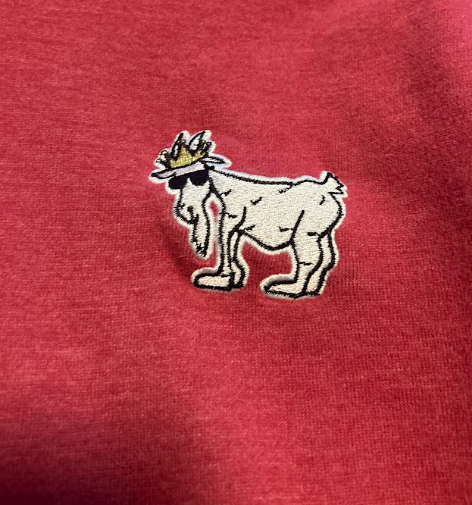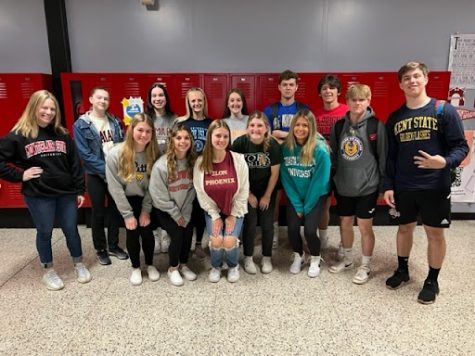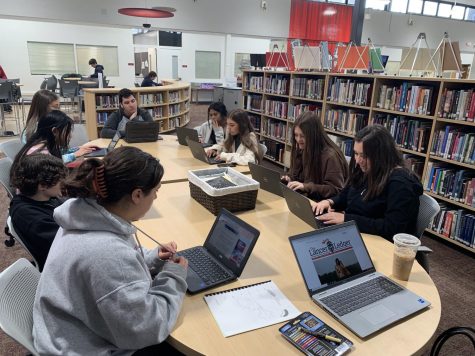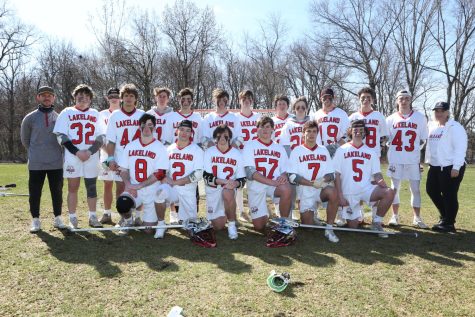The High School Stories That Stayed With Me
Books are a timeless part of our society. Do you have a favorite?
Throughout the course of high school, students are introduced to a variety of different books during their English classes. Some students are touched more by a particular book than others, and we all have our favorites. As a senior who has gone through the Honors courses and is currently in AP English, I’ve read my fair share of books throughout high school. Like everyone else, I’ve hated some and loved others. This article will go over my personal top three books taught here at Lakeland Regional High School. These spoiler-free opinions will not only go over why the books deserve to be rated as the best in high school, but also the lessons these stories have to teach me and how they still apply to modern-day society. I strongly urge you to read the following books if you have not yet.
3.) Frankenstein by Mary Shelley
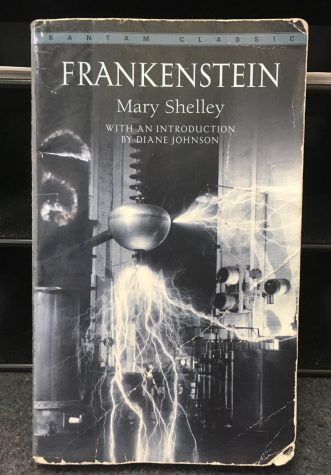
Frankenstein, by Mary Shelley. Assigned to the sophomores going into English 3 Honors.
A classic tale that has inspired countless spin-offs and remakes over the decades, Frankenstein, also known as The Modern Prometheus, is a timeless story that almost everyone knows. The original version, however, is far more complicated and practical, and the themes it highlights are real-life lessons that affect everyone. Switching perspectives between the monster and his creator, Victor, the book Frankenstein explores the complex nature of how one’s point of view changes everything, and this lesson is especially reinforced through the ending. Due to the unsurety that Shelley creates in the readers through her morally ambiguous characters, she reinforces the idea that life is all a matter of perspective, and the decisions we have to make won’t always have a clear answer. Not only that, but the monster’s story within the story teaches about how the treatment – especially the mistreatment – of a person can significantly impact their beliefs and views, which then, in turn, influence their actions.
At the same time, Shelley explores a timeless conflict of society, which is the ethical boundaries of science. Although written decades ago, the idea of creating life or resurrecting the dead is still a significant aspect of modern science, as well as an idea that is still being researched for the future. Frankenstein helps highlight some of the ethical questions that are relevant not only to our generation but also the generations to come.
Then, there is the format of the book, which can be confusing to some, as there are technically three stories within one. In a way, Shelley is demonstrating how events in life overlap, and how the decisions of one person can significantly impact the lives of even people who are removed from their situation. At the same time, the style and format help students to organize the chronology of multiple events, which can be important not only for other books but also in our world.
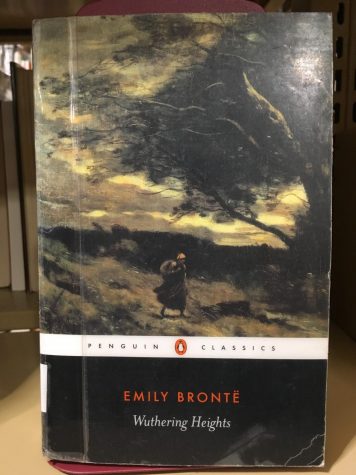
A copy of Wuthering Heights displayed in the media center. It can be found under BR in the fiction center.
2.) Wuthering Heights by Emily Brontë
One of the many famous books to come out of the Brontë sisters, Wuthering Heights, isn’t your typical romance. Following the Byronic hero of the tale, Heathcliff, the story explores the themes of revenge, generational burdens, and the failure to deal with change. While revenge does lead to personal satisfaction in the novel, the story shows how one person successfully getting revenge affects everyone else in negative ways. The consequences of the first revenge lead to a second revenge, resulting in the second generation reflecting the negative aspects of the first generation. Therefore, Brontë shows not only how revenge affects everyone, but also the effects that one generation has on the next, which is something that all of us have experienced. In the end, Brontë teaches that generations are not chained down by one another, and that the new generation can break free.
Then, there is the lesson of change, its inevitably, and the consequences of it. A major part of the conflict, which is what causes the desire for revenge and the generational burdens, is the fact that many of the main characters fail to cope with change, and instead, they fight it. These changes include new family members, shifts in favoritism, new relationships, and the growth and decline of people’s personalities. Dealing with change is a timeless concept, and failing to accept that our lovers or friends have changed into different people is certainly prominent in the lives of high schoolers. There’s even more, however. The many characters of Wuthering Heights are difficult to like, and they’re a bit worse than just morally ambiguous. Yet, the reader doesn’t instantly hate everyone. In fact, the dynamic characters draw in the reader and causes them to question what exactly makes a person good or bad.
On top of this, there is the writing style. More modern than Shakespeare, but just as complicated to read as Old English, Wuthering Heights opens students up to a new style of writing. Although difficult to understand at first, Brontë’s writing style broadens a student’s ability to read, as well as introducing a new style for them to write in. The format of the story also reinforces the idea of a story within a story, and it helps to improve students ability to differentiate between the past and the present.
1.) The Great Gatsby by F. Scott Fitzgerald
My favorite high school book so far, The Great Gatsby, is the only book that I’ve ever read more than what was assigned that night. I found myself wanting to know what was going to happen. I loved the book due to personal reasons that connected me with the plot and characters, but the story is actually something that we can all relate to. Jay Gatsby is a flawed man due to his inability to let go of the past. Despite this, he works hard to accomplish his dream, and although others judge this dream, it means everything to him. We are all flawed, and our dreams won’t make sense to everyone, yet that doesn’t mean hard work won’t help us get anywhere in life, and that’s an important lesson from Gatsby.
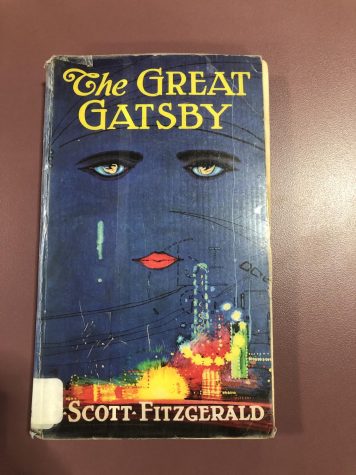
The Great Gatsby, by F. Scott Fitzgerald. It is taught to sophomores.
Overcoming hardship isn’t the only lesson taught by Gatsby, however. Romance is a major part of the plot, and through the conflicts and events that unfold, Fitzgerald shows how holding on to the past and never moving on can lead to one’s downfall. Not only just former love and relationships but also concepts such as reliving one’s high school days or thinking that they are in power, when, in reality, times have changed. Then, there is the whole idea of being unbiased and uninvolved. Nick Carraway, the narrator of the story, starts the tale by stating that he was raised to be unbiased and not opinionated due to the advantages that he had growing up, as not everyone had the same things growing up as he did. Through his inaction, Carraway serves to show how not stepping in can result in conflicts and consequences that are horrible, and that sometimes, we need to get involved.
Yet, there is even more that the story has to offer. Although set in the Roaring Twenties, the economic conditions and social classes of that time are still relevant. While modern society has advanced and become more accepting, there is still competition among the social classes of our society based on income. One of the lessons that Fitzgerald teaches us is that too much focus on money and social classes will ultimately lead to one’s downfall, and while this is never directly stated, it is clearly implied through the way events unfold. Not only does he teach that too much focus on money and social classes is destructive, Fitzgerald also shows that lying about those statuses can be just as condemning. Going along with the theme of lying, there is a thought-provoking question and theme that Fitzgerald explores, which is how an immoral action from the past will affect the future, and how people should judge someone based on past actions.
Lessons about love and moving on are major parts of what makes The Great Gatsby so great, but there is also a lot of technical stuff that makes the book perfect for teaching and learning. The book is filled with symbolism and motifs, and identifying and understanding those is an important skill for any student. There are also two famous scenes from the story, in which the first one foreshadows the second one, making it a great example of foreshadowing.
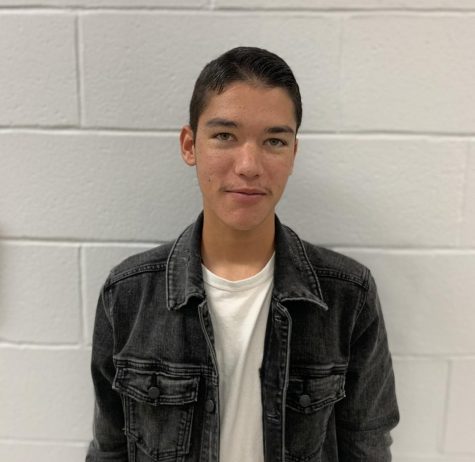
Vince is a senior at LRHS and a prominent staff writer for The Lancer Ledger. He has been a dedicated writer for over two years straight, devoting most...
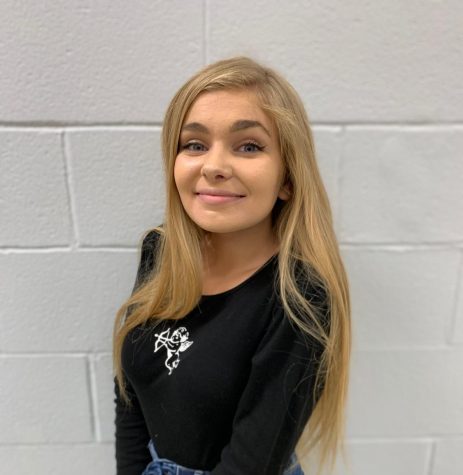
Emily is a senior at LRHS and staff writer for The Lancer Ledger. This is Emily’s second year writing for the paper, and she is excited to do so! Outside...



